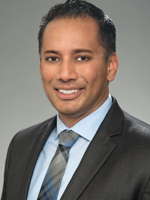As a Medicare Accountable Care Organization (ACO), Memorial Hermann has improved information sharing among providers and made organizational changes that allow the health care system to deliver seamless service across the continuum of each patient’s care. Among the changes was the appointment of Carl Josehart, CEO of TIRR Memorial Hermann, as system executive for post-acute care services in 2015. What began as the Memorial Hermann Rehabilitation Network – an effort to coordinate rehabilitation care at multiple facilities across Greater Houston – has since expanded to include skilled nursing, home health, hospice, durable medical equipment and other services in a broader Post-Acute Care Network.
“Our ACO strategy is consistent with Medicare’s triple aim: to provide the highest quality care at a reasonable price with a good patient experience,” Josehart says. “The larger goal is to create a comprehensive, integrated network to help people after illness or injury, regardless of where they are in the recovery journey. By weaving all of our post-acute care services together into a tight network, we can ensure that our patients get the right care at the right time in the right place.”
For patients this means no repetition of diagnostic tests and no need to answer the same questions repeatedly in visits to providers who are members of the network. Doctors and other clinicians communicate with each other, partnering with patients to make health care decisions. Patients spend less time filling out medical history paperwork because their providers share information in an electronic health record.
“Patients are at the center of care delivered by providers who are better able to keep them informed and honor their choices,” Josehart says. “In redefining the patient experience to make it more user friendly, we empower the people who use our services to make better decisions for themselves. As we move toward population health, our goal is to keep people healthy and in the community as long as possible.”
 All services available through the Post-Acute Care Network are clinically integrated with UT Physicians, which has more than 1,000 clinicians affiliated with Memorial Hermann and UTHealth’s McGovern Medical School, and MHMD, the Memorial Hermann Physician Network and one of the largest physician organizations in the country, with more than 4,000 independent and employed physician members. “In the post-acute care environment there has been significant variation in the type and amount of care provided, leading to higher costs,” says Nishant “Shaun” Anand, MD, FACEP, physician-in-chief of MHMD and a recognized expert in population health. “In the past year we’ve focused our attention on developing a post-acute care strategy built around our network of affiliated providers, who work in close collaboration with other providers who are not part of the Memorial Hermann System.”
All services available through the Post-Acute Care Network are clinically integrated with UT Physicians, which has more than 1,000 clinicians affiliated with Memorial Hermann and UTHealth’s McGovern Medical School, and MHMD, the Memorial Hermann Physician Network and one of the largest physician organizations in the country, with more than 4,000 independent and employed physician members. “In the post-acute care environment there has been significant variation in the type and amount of care provided, leading to higher costs,” says Nishant “Shaun” Anand, MD, FACEP, physician-in-chief of MHMD and a recognized expert in population health. “In the past year we’ve focused our attention on developing a post-acute care strategy built around our network of affiliated providers, who work in close collaboration with other providers who are not part of the Memorial Hermann System.”
For example, leadership at the Post-Acute Care Network has identified 74 preferred provider skilled nursing facilities across Houston. “When we refer patients to a service we don’t own and operate, we want to be sure those providers meet our standards of high-quality, low-cost care,” Josehart says. “We’ve categorized them based on their clinical capabilities so that we can direct our patients to a clinically integrated partner that exactly matches their skilled nursing needs.”
Skilled nursing is a major area of focus for the Post-Acute Care Network. “We want to be able to transfer patients in a seamless manner and transition them back to their primary care providers,” Dr. Anand says. “Our goal is not to deny care but to send people to the most medically appropriate facility. We continue to look for opportunities to collaborate across the Greater Houston area.
“The really cool thing about Memorial Hermann’s clinically integrated network is that we have a model where physicians, hospital, care and case managers are all working together,” he adds. “We’ve all really pulled together and made tremendous progress across the Post-Acute Care Network. It’s a very exciting time to be in health care, particularly at Memorial Hermann, where the focus on population health and clinically integrated care is a priority.”